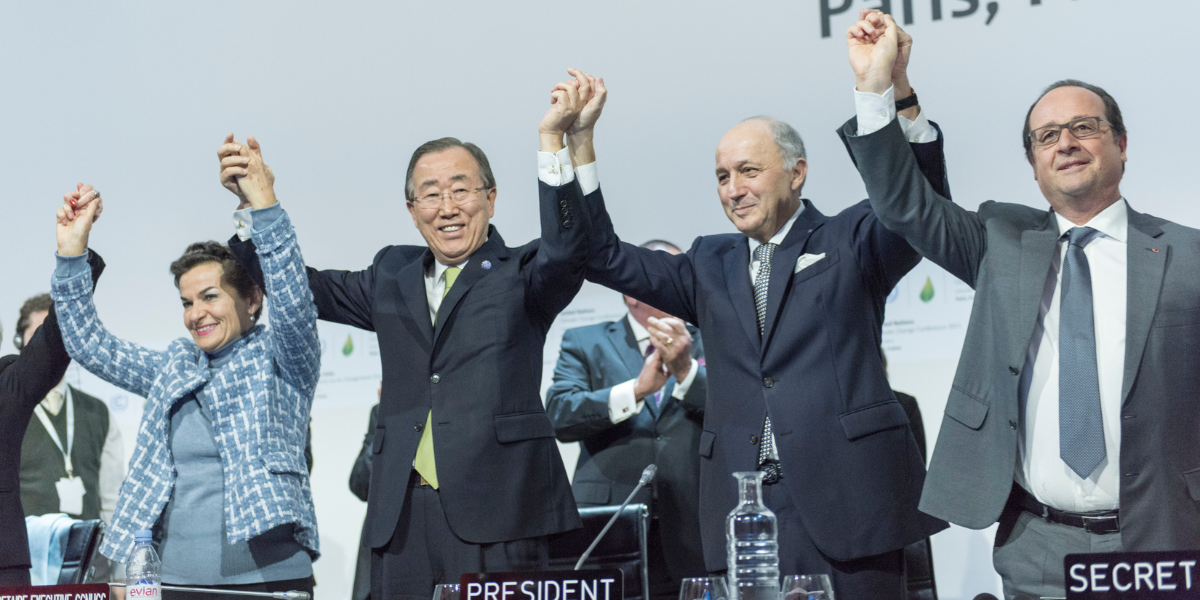Progress and shortcomings of the translation of EU NDC to National Energy and Climate Plans
The CIDSE’s NDC Transparency Initiative has published a new study commissioned to Forum Ökologisch-Soziale Marktwirtschaft (FÖS) that identifies a high risk that the EU will not reach the climate targets of the Paris Climate Agreement. Two case studies for Germany and France underline the need for more transparency, ambitious measures and the involvement of the public in order to realize swift climate action with support of the majority of citizens.
France and Germany have established energy and climate policies and their monitoring reports are comprehensive, regarding renewable energies and energy efficiency. But there is a gap of local climate protection measures and the linkage to the National Energy and Climate Plans (NECP). Special attention is paid to the analysis of how NDCs are used for the expansion and diffusion of renewable energies and support energy access. Germany is improving its energy efficiency efforts, but there is still need for more ambition. France is also aiming to reach the international climate targets, but there are concerns about sufficient measures to reduce emissions and the transition to renewable energies. Both case studies show the need to accelerate the expansion of renewable energies and add additional energy efficiency measures in order to achieve the climate targets.
Dr. Beate Richter, Research Associate for Energy and Agricultural Policy (FÖS), comments: “The case studies show how the NDCs have been implemented in laws, measures and strategies at European and national level. Nevertheless, much more effort is necessary to reach the climate targets. Therefore the EU’s climate targets should include the potential of policies for sufficiency as additional pillar in the instrument mix. Sufficiency potentials of reducing the absolute energy consumption should be systematically and scientifically identified and their implementation politically promoted.”
Lydia Machaka, Energy and Extractivism Officer (CIDSE) says: “The most recent IPCC reports affirm what science has long required, that we need to stay below 1.5°C target to avoid the worst consequences of the climate crisis. Particularly, this critical decade demands an unprecedented acceleration of climate action, leaving fossil fuels in the ground, and moving to socially just renewable energy systems with sufficiency in mind. Tangible progress can be effectively tracked by ensuring that the connections between different design and implementation of policies, laws, and plans are inclusive, transparent, and easily accessible to everyone, including policy makers, technical experts and especially ordinary people who are facing adverse climate impacts daily, in Europe and beyond.”
Madeleine Wörner (Misereor) explains: “The recently published study forms part of an international collaboration of civil society organizations aiming to enrich the technocratic manner of the Paris Agreement with implementation in national policy and on the ground. The European Angle of this work has made clear, that coherent implementation and corresponding climate action is dependent on the political motivation and priorities and not just money and available infrastructure. 100 % Renewables until 2040, increased implementation of sufficiency policy and participatory policy design need to get much more emphasis in EU policy making!”
Additional information:
- The Study “Implementation of the EU NDC and NECPs – Tracing Climate Justice Action in Germany and France” is online available through this link.
- CIDSE, Misereor, Fastenaktion webinar, 15 May 2024
Contacts:
- Lydia Machaka, Energy and Extractivism Officer, CIDSE: machaka(at)cidse.org,
- website: CIDSE
- David Knecht, Energy and climate justice Officer, Fastenaktion: knecht(at)fastenaktion.ch, website: Fastenaktion
- Madeleine-Alisa Wörner, Global Energy Policy Officer, Misereor: madeleine.woerner(at)misereor.de, website: Misereor
- Dr. Beate Richter, Research Associate for Energy and Agricultural Policy, FÖS: beate.richter(at)foes.de, website: https://foes.de/de-de/
Cover image credit: UN Photo/Mark Garten

